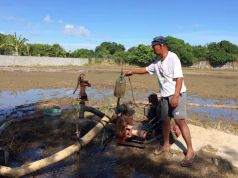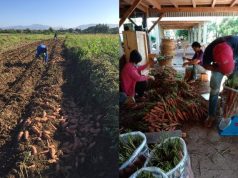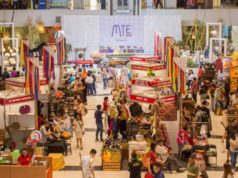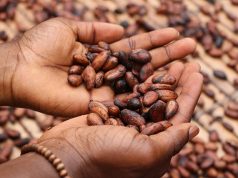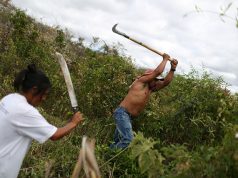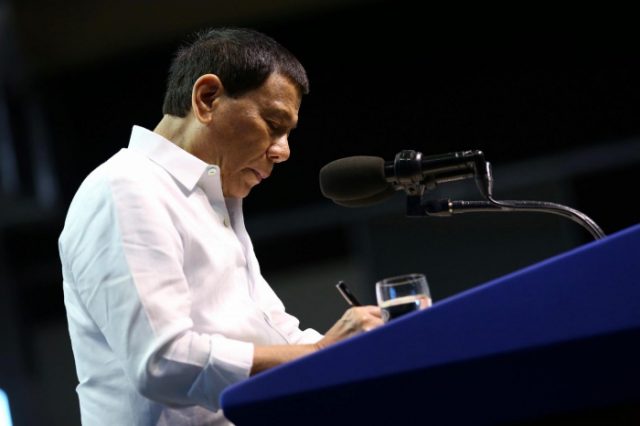
SAGAY (Corrected, Oct. 25, 9:36 a.m.) — Philippine President Rodrigo Duterte on Tuesday canceled a visit to Sagay City, where nine farmers were killed while occupying part of a sugar plantation, as campaigners criticized the government for failing to protect land rights activists.
Two minors were among those killed on Saturday night in Negro Occidental province, according to the Philippines National Police, which said it was investigating reports that gunmen opened fire on the farmers.
The National Federation of Sugar Workers (NFSW) said the farmers had been staging “bungkalan”, or collective cultivation of idle farmland that they had occupied.
“Bungkalan reflects the failure of the government’s land reform programme and the landlords’ refusal to distribute land to the tillers,” the NFSW said in a statement.
The land was earmarked for redistribution under the government’s agrarian reform programme, but the plantation owner had used a private security force to intimidate the farmers, according to NFSW.
Presidential spokesman Salvador Panelo said in a statement that Duterte was “deeply perturbed” by the killings, and had ordered “a thorough and impartial investigation”.
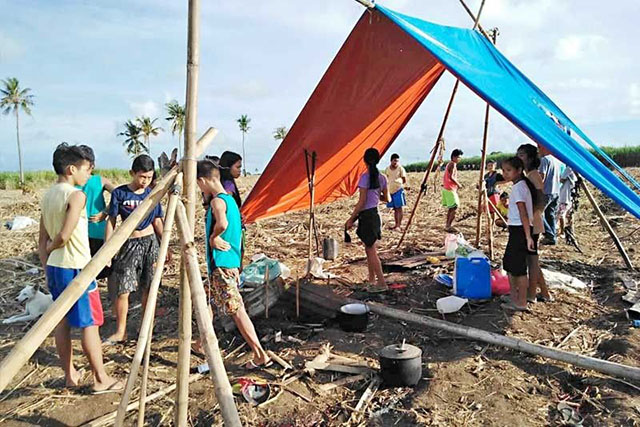
Duterte was scheduled to meet with their families in City Hall where the coffins have been placed, but canceled the trip “due to inclement weather,” assistant secretary of presidential communications, Mia Reyes, said in a text message.
While the scheduled visit itself was “unprecedented”, it did not negate the fact that the government has failed to implement agrarian reform, and protect farmers and activists, said Christina Palabay of the rights group Karapatan.
“We have demanded a genuine agrarian reform programme to ensure redistribution of agricultural land and adequate support for farmers,” she told the Thomson Reuters Foundation.
“We are conducting our own fact-finding mission, but we are not confident that these perpetrators will be brought to justice,” she said.
Land reform has long been a contentious issue in the Philippines, where a lasting legacy of Spanish colonial rule is a concentration of ownership – including of farmland – among a wealthy few.
The agrarian reform programme, known as CARP, was enacted in 1988, with an aim to reduce inequality and alleviate poverty. Its deadline has been extended several times.
Of a total area of 5.4 million hectares under CARP’s scope, the government has distributed 4.8 million hectares as of December 2017, according to the Department of Agrarian Reform (DAR).
But activists say officials accepted thousands of fraudulent claims, and that allocated land remains with private owners and corporations who refuse to honor titles issued by DAR.
The killings are the latest in the country that is the deadliest in Asia for land and environmental activists, according to U.K.-based advocacy group Global Witness.
Hundreds of farmers have also been arrested, and at least 172 killed since Duterte took office in 2016, according to peasants’ group Kilusang Magbubukid ng Pilipinas (KMP).
“The climate of the country is not favorable for farmers and for land and environmental defenders,” said Palabay.
“We are in grave danger.” — Reporting by Rina Chandran; Editing by Jared Ferrie





